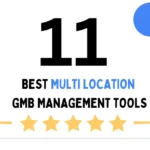Retail and eCommerce landscape businesses need platforms that can handle complex operations, scale with growth, and deliver exceptional customer experiences. While there are many eCommerce platforms available, SAP Commerce Cloud stands out for companies looking for an enterprise-grade solution that combines flexibility, integration, and advanced capabilities.
This guide explores why many organisations select SAP Commerce Cloud over other options, including solutions such as Nvizion, and how working with the right SAP commerce solution provider can make all the difference.
Built for Enterprise Needs
SAP Commerce Cloud is designed for large-scale operations. It can support businesses that manage vast product catalogues, operate in multiple countries, and serve both B2B and B2C markets. Its architecture can handle high transaction volumes without performance issues, which is essential for peak sales periods and global customer bases.
Unlike many smaller platforms, SAP Commerce Cloud offers a unified approach to managing multiple sales channels, online, mobile, and in-store. This omnichannel capability ensures customers have a consistent experience regardless of how they interact with the brand.
Seamless Integration with Business Systems
One of the main reasons businesses choose SAP Commerce Cloud is its ability to integrate smoothly with other SAP solutions, such as ERP and CRM systems. This integration allows for a single, connected view of customer data, inventory, and operations.
For organisations already using SAP products, this means faster implementation and easier data management. For others, the benefit lies in the ability to connect eCommerce with supply chain, finance, and customer service functions, reducing duplication and errors.
While platforms like Nvizion also offer strong integration within their ecosystem, companies that already operate with SAP systems often find it more efficient to stay within the same environment.
Advanced Personalisation Capabilities
Personalisation is now a key driver of online sales. Customers expect product recommendations, offers, and content to reflect their preferences and behaviour. SAP Commerce Cloud uses AI-driven tools to analyse customer data and deliver tailored experiences at scale.
This level of personalisation can improve engagement, increase conversion rates, and encourage repeat purchases. Retailers can create campaigns and recommendations based on browsing history, purchase patterns, or even location, making the shopping journey more relevant to each user.
Robust Support for B2B and B2C
Some platforms are built with either B2B or B2C in mind, but SAP Commerce Cloud supports both models effectively.
- B2B: It offers features like contract pricing, account management, bulk ordering, and integration with procurement systems.
- B2C: It delivers the speed, personalisation, and ease of navigation that consumer shoppers expect.
This flexibility allows businesses that operate in both markets to run their eCommerce strategy from a single platform rather than maintaining separate systems.
Scalability and Global Reach
For organisations planning to expand into new markets, SAP Commerce Cloud offers multi-language and multi-currency support. It can adapt to different regulatory environments and integrate with local payment gateways and shipping providers.
Its scalability means that whether you are adding new product lines, entering new regions, or experiencing sudden traffic spikes, the platform can manage growth without sacrificing performance.
Strong Security and Compliance
In eCommerce, security and compliance are critical. SAP Commerce Cloud includes built-in tools to protect customer data and comply with regulations like GDPR. Features such as secure payment processing, fraud detection, and user access controls help reduce risk and build customer trust.
Comparison to Oracle Digital Commerce
When weighing SAP Commerce Cloud against Oracle Digital Commerce, the choice often comes down to existing infrastructure, business model, and long-term growth plans.
- Integration: SAP’s tight integration with its ERP and CRM products makes it ideal for businesses already invested in SAP solutions. Oracle offers similar advantages for companies within its own ecosystem.
- Customisation: Both platforms support customisation, but SAP Commerce Cloud combines strong out-of-the-box features with the flexibility to adapt to industry-specific needs. Oracle’s API-first approach may appeal to businesses that prioritise bespoke development from the start.
- Omnichannel Strength: SAP Commerce Cloud has a long track record in delivering seamless omnichannel experiences, particularly for global retailers with complex operations.
- Global Expansion: Both offer scalability, but SAP’s established multi-language and multi-currency capabilities are a strong fit for companies with immediate international ambitions.
The Role of an SAP Commerce Solution Provider
Choosing a platform is only the first step. Successful implementation and long-term optimisation require expertise, especially with a solution as powerful as SAP Commerce Cloud. Partnering with a skilled SAP commerce solution provider ensures that the platform is configured to meet your business goals and integrated effectively with other systems.
A good provider will:
- Assess your current operations and recommend the right setup.
- Handle complex integrations with ERP, CRM, and third-party tools.
- Customise features to suit your customer journey.
- Provide ongoing support and performance optimisation.
This expertise can save time, reduce costs, and ensure that your investment delivers maximum value.
Why Businesses Make the Switch
Companies often move to SAP Commerce Cloud when they outgrow the capabilities of smaller or less flexible platforms. The need for greater scalability, deeper personalisation, and better integration with core business systems often drives the change.
For global enterprises or those with ambitions to expand, the platform’s proven ability to manage complex product structures, support multiple business models, and deliver consistent experiences across channels is a decisive advantage.
Final Thoughts
Selecting the right eCommerce platform is a critical decision that affects every part of your digital strategy. While there are many capable options on the market, SAP Commerce Cloud remains a preferred choice for businesses seeking an enterprise-grade, fully integrated, and highly scalable solution.
When combined with the expertise of a trusted SAP commerce solution provider, the platform can help retailers and brands deliver seamless omnichannel experiences, adapt quickly to market changes, and maintain a competitive edge.
For organisations comparing SAP Commerce Cloud with alternatives like Nvizion, the final choice will depend on existing systems, business complexity, and long-term vision, but for many, SAP’s blend of scalability, integration, and personalisation is hard to beat.
You May Also Like: What Makes Dubai an E-commerce and Mobile App Powerhouse?











